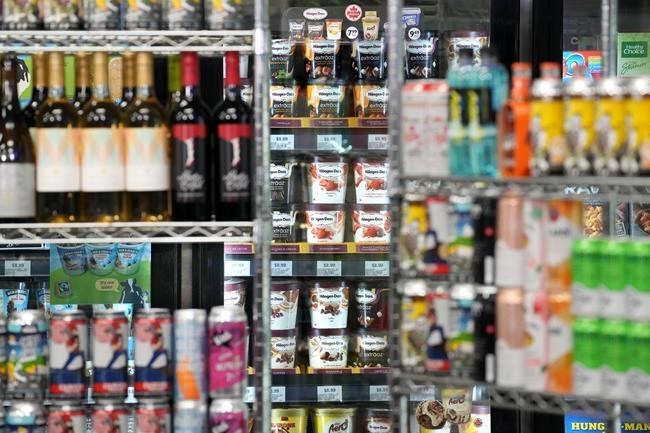TORONTO — The Ontario government has announced sales of beer, wine, cider and ready-to-drink cocktails will be allowed in convenience stores and all grocery stores in Ontario by 2026.
Here's how alcohol is sold in other Canadian provinces:
British Columbia: Beer, wine and spirits are sold in provincially-owned and private liquor stores. Craft beer can be purchased at a brewery. In 2015, the B.C. government allowed wine to be sold in grocery stores that met specific rules.
Alberta: The province has operated a privatized liquor retail industry for 30 years, with 2,400 retailers offering more than 30,000 products overseen and regulated by the province. Liquor has also been sold at a handful of 7-11 retail stores since 2021.
Saskatchewan: Customers can purchase alcohol from licensed retailers, including in standalone stores or businesses attached to a permitted restaurant. In smaller communities, businesses can sell alcohol alongside unrelated products, as long as they have a liquor license.
Manitoba: The province has a mix of private and public channels. In urban areas, government-run stores offer a full range of products, while there are also many private beer vendors and a small number of private wine stores. The government-run stores include small "express" boutiques inside some large grocery stores. In rural and northern communities, private vendors sell a full range of products.
Quebec: Beer and a limited selection of wine -- imported in bulk and bottled in Quebec -- are sold in supermarkets and convenience stores. Liquor and most wine is available only through the province's liquor corporation, known as the SAQ.
New Brunswick: The provincial liquor corporation oversees sales of all alcohol. Since 2014, wine has been sold in some grocery stores, and today there are 66 grocery outlets in the province that sell cider, wine, and beer.
Prince Edward Island: Liquor, beer and wine are sold in 18 corporate retail outlets across the province as well as in 12 liquor agency stores. The Prince Edward Island Liquor Control Commission operates the outlets and uses a request for proposal process to appoint the liquor agency vendors. Most of the liquor agencies have other complementary retail onsite.
Nova Scotia: Beer, wine and spirits are sold at provincially-owned liquor-store outlets. Some beer, wine and spirits are available at private wine and specialty stores, and manufacturer retail stores.
Newfoundland and Labrador: Beer made in the province is available in various convenience stores. Liquor, beer and wine are sold at provincially-owned liquor store outlets.
This report by The Canadian Press was first published Dec. 14, 2023.
The Canadian Press




